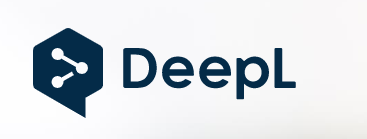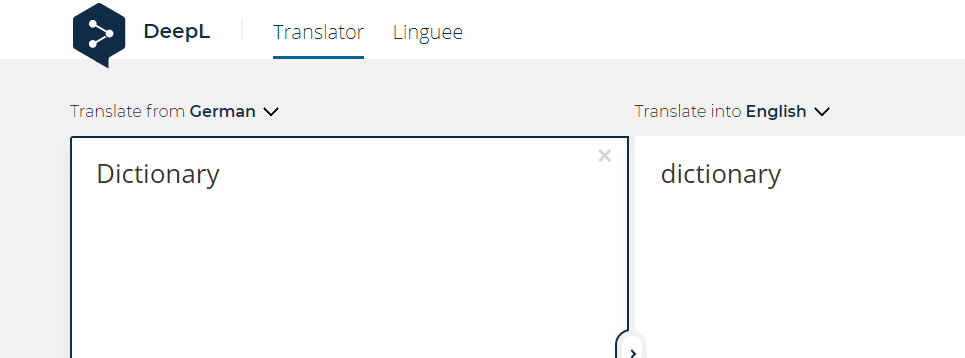Blog
2019.08.12
Translation in general
Review of the machine translation tool DeepL
You might have already heard of the machine translation service Deep L. It is similar to Google translate and offers free machine translation in several languages, e.g. German, English, Spanish, French, Italian and more.
We have reviewed Deep L for their for German-English translation and can agree with the general consensus that is better than google translate. Nevertheless, it cannot yet replace human translation. Here are a few issues we found.

DeepL doesn’t recognize mistakes in the original
If there is a spelling or grammatical error in the original document, a human translator will recognize it and correct it accordingly. DeepL will not realize that there is a mistake and turn the sentence into a nonsensical translation.
DeepL does have issues with context
After recent updates, Deep L is now able to translate full documents instead of only short passages of texts. That helps with consistency of special terms and correct understanding of context, nevertheless it still makes mistakes. We tried to translate one of our recent blog articles from English to German. Even though it clearly talks about written language the term character (referring to logograms used in written language) was translated to “Charakter” (a character in a movie/book).
In a blog article the wrong translation choice might simply end up in a funny sentence however, in terms of legal or medical translation, such a mistake could be crucial.
DeepL has problems to differentiate between “You” and “You”
You can use you to address a person or you can use it to make a general statement. When translating English to German the former needs to be translated into “Du” (informal) or “Sie” (formal). The latter is usually translated as “man”. We found that DeepL uses “Sie” most of the time when “man” would be more appropriate. Also, it tends to switch from an informal you to a formal you within the same text for no apparent reason.
Deepl L sometimes leaves out words

We also realized that it sometimes leaves out words, e.g. in the previously mentioned blog article “advanced Japanese learners” was translated to “fortgeschrittene Japaner” (advanced Japanese) which has a completely different meaning. If you translate from German to English though the term is translated correctly.
DeepL doesn’t translate the word Dictionary

When you translate the word Dictionary from English to German, Deep L will provide “Dictionary” as the translation. Dictionary is not a German word. A correct translation could be “Wörterbuch” which is shown as a possible option when you edit the translation but for some reason the default German translation of Dictionary is Dictionary.
As you can see DeepL is still far from replacing human translators. Nevertheless, it can be a useful tool that can help to understand a text if you do not need the exact wording. However, do not make the mistake to rely on it for a text you want to publish or texts where an exact translation is crucial. The financial harm that can be caused by an incorrect translation can high be several times the amount you might save on translation cost.
Using DeepL together with a professional linguist that can post edit the result might be an option, but we don’t think that this method would not necessarily be faster than a veteran translator working with translation assistance tools.
As for now DeepL does not offer Japanese translation. We are looking forward to reviewing the results should Japanese become available in the future.
Have you used DeepL before? What experiences did you make?
Similar Posts
[jetpack-related-posts]



Leave a Reply